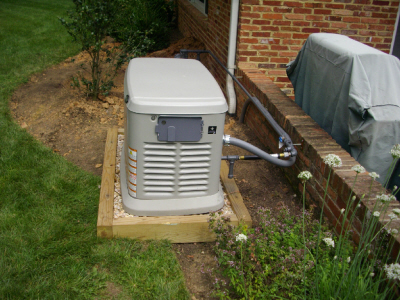A Beginner's Guide to Home Generator Installation in Warner Robins
For homeowners in Warner Robins, a home generator is a valuable investment that provides peace of mind during power outages. However, if you’re new to the idea of installing a home generator, you might have a few questions. This guide will walk you through the basics, from understanding what a home generator is to assessing your power needs, the installation process, and how to maintain your generator for long-term reliability.
Understanding Home Generators
A home generator is a backup power system that automatically provides electricity to your home when the main power grid fails. These generators are typically powered by natural gas, propane, or diesel, and they are designed to kick in within seconds of a power outage. Unlike portable generators, which require manual setup and fuel management, home generators are permanently installed outside your home, similar to an air conditioning unit, and are connected directly to your home’s electrical system.
Home generators come in various sizes, each suited for different levels of power demand. Some are designed to power just the essentials, like your refrigerator, lights, and HVAC system, while others can power your entire home, including high-demand appliances like electric stoves and water heaters.
Assessing Your Power Needs
Before choosing a home generator, it’s crucial to assess your power needs. This involves determining which appliances and systems you want to keep running during an outage and how much power they require. Here are some steps to help you assess your power needs:
List Essential Appliances: Start by listing all the appliances and systems you consider essential during a power outage. This typically includes your refrigerator, HVAC system, lighting, and any medical equipment.
Check Wattage Requirements: For each appliance, check the wattage requirement. This information is usually available on the appliance’s label or in the user manual. Add up the total wattage of all the appliances you want to power.
Consider Future Needs: Think about any future needs or changes to your home that might affect your power usage. For instance, if you plan to add a home office or install additional appliances, factor that into your power needs.
Consult a Professional: Consulting with a professional electrician can help you accurately assess your power needs and choose the right generator size. They can also provide advice on whether you need a generator that powers just the essentials or one that can handle your entire home.
The Installation Process Explained
Once you’ve selected the right generator, the installation process begins. Here’s what you can expect:
Site Assessment: A licensed electrician will visit your home to determine the best location for your generator. Typically, it’s installed outside your home, near your electrical meter, and in a location that complies with local building codes and safety requirements.
Permits and Approvals: Depending on your location, you may need permits or approvals from local authorities before installation can proceed. Your electrician will handle this process, ensuring all necessary paperwork is in order.
Preparation: The installation site is prepared by creating a stable, level base for the generator. This may involve pouring a concrete pad or installing a prefabricated base.
Electrical Connections: The electrician will connect the generator to your home’s electrical system. This involves installing a transfer switch, which automatically shifts power to the generator during an outage and back to the grid once power is restored.
Fuel Connections: If your generator is powered by natural gas or propane, a certified technician will connect it to your home’s fuel supply. For diesel generators, a fuel tank will be installed.
Testing and Inspection: After installation, the electrician will test the generator to ensure it operates correctly and efficiently. They will also conduct a final inspection to verify that everything is up to code and functioning as expected.
Maintenance Tips for Longevity
To keep your home generator running smoothly for years to come, regular maintenance is essential. Here are some maintenance tips to ensure longevity:
Regular Testing: Run your generator for a few minutes every month to ensure it’s functioning properly. This helps keep the engine lubricated and identifies any potential issues before they become serious problems.
Change the Oil and Filters: Like any engine, your generator requires regular oil changes and filter replacements. Refer to the manufacturer’s guidelines for the recommended schedule, but generally, this should be done every 50-100 hours of operation or annually.
Inspect for Wear and Tear: Regularly inspect your generator for any signs of wear and tear, such as frayed wires, loose connections, or rust. Address any issues promptly to prevent them from escalating.
Keep the Area Clear: Ensure that the area around your generator is clear of debris, leaves, and other obstructions. Proper airflow is crucial for the generator’s operation and helps prevent overheating.
Professional Maintenance: Schedule annual maintenance with a qualified technician to perform a thorough inspection and tune-up. They can identify and fix any issues that might not be obvious during routine checks.
Installing a home generator in Warner Robins is a wise investment that ensures your home remains safe and functional during power outages. By understanding how home generators work, accurately assessing your power needs, following the installation process, and adhering to regular maintenance, you can enjoy reliable backup power for years to come. If you’re considering installing a home generator, contact Heritage Electrical Services for expert advice and professional installation services tailored to your needs.

